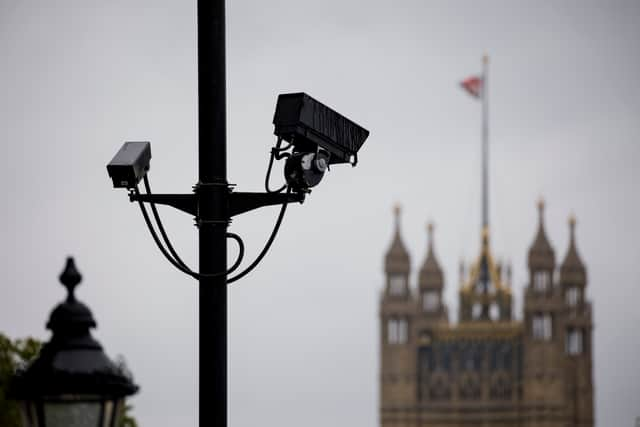Shoplifting: passports may be introduced to police database to match criminals to CCTV footage
and live on Freeview channel 276
Comparing CCTV to passport photos may be used as a way to crack down on the increasing number of shoplifting incidents in the UK.
The government has come under pressure from retailers as thefts have surged, partly due to organised crime, and partly because of the cost-of-living crisis.
Advertisement
Hide AdAdvertisement
Hide AdThe policing minister has suggested that police begin integrating passport photos into the police database to find a match on CCTV footage of any thefts.


At a fringe event at the Conservative Party conference, Chris Philp said: "I'm going to be asking police forces to search all of those databases - the police national database, which has custody images, but also other databases like the passport database - not just for shoplifting but for crime generally to get those matches, because the technology is now so good that you can get a blurred image and get a match for it."
However, including passport photos in police database poses a clear threat to privacy - as the tool can return matches even if images are blurred or partially obscured, producing multiple "matches" - and runs the risk of creating unavoidable false positives.
This may also increase police workload as courts may not accept a facial recognition computer match as evidence in the same way they accept DNA or fingerprint matches meaning officers would need to prove or disprove individuals' involvement.
Advertisement
Hide AdAdvertisement
Hide AdFurthermore, it does not address how many people are struggling with the cost of living crisis.
Silkie Carlo, the director of the privacy campaigning group Big Brother Watch, said: "This particular policy doesn't do what the police say they need, what retailers say they need and it doesn't help people in need either… Building a surveillance state doesn't address any of those issues."
A Home Office spokesperson said technology such as facial recognition can help the police "quickly and accurately identify those wanted for serious crimes, as well as missing or vulnerable people."
"It also frees up police time and resources, meaning more officers can be out on the beat, engaging with communities and carrying out complex investigations," they added.
"We are working with policing to enable seamless searching of relevant images where it is necessary and proportionate for them to do so to investigate crime and protect the public."
Comment Guidelines
National World encourages reader discussion on our stories. User feedback, insights and back-and-forth exchanges add a rich layer of context to reporting. Please review our Community Guidelines before commenting.
